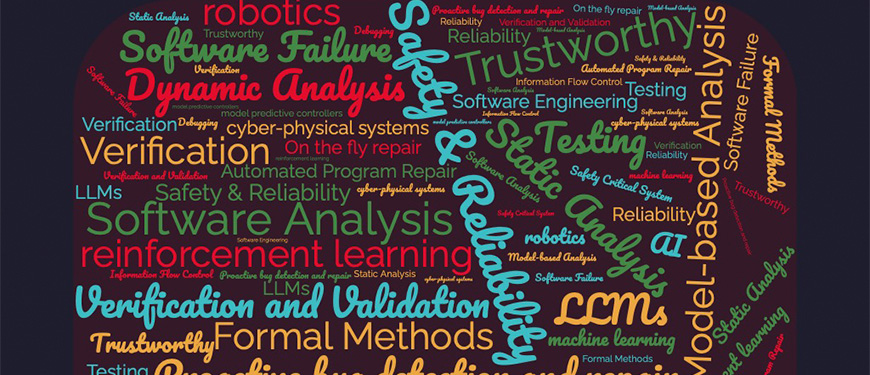The reliance on open-source software makes our infrastructure prone to the security vulnerabilities and safety failures of such software. Organizations often incur significant costs due to software maintenance, particularly for post-deployment bug fixes. Therefore, it is crucial to develop and implement robust analysis techniques during both the development and deployment stages.
The Trustworthy Systems Laboratory investigates whether systems can be proven to be trustworthy. Confidence in a system’s trustworthiness is achieved through reliable design, transparency, verification & validation, and various software analysis techniques such as static analysis, formal methods, and model checking.
Our vision is to facilitate proactive software analysis techniques to meet the global demand for design and systems that are not only reliable but also secure, robust, and resilient to failures.
Our laboratory investigates multiple dimensions of trustworthiness across software and systems, including human-machine interactions. We address critical aspects such as safety, functional correctness, predictability, security, and privacy. Additionally, we focus on traditional dependability attributes, including integrity, robustness, and reliability.
Services
- Analyze software artifacts to discover vulnerabilities/defects and provide mitigation.
- Utilize AI/ML techniques and build intelligent predictive models to optimize the trustworthy operation of various Cyber-Physical Systems (including robotics and automation).
- Automated program repair, i.e., finding and repairing software vulnerabilities and bugs on the fly.
- Consultancy to enhance confidence in system trustworthiness.
Contact
 |
Eun-Young Kang SDU Software Engineering eyk@mmmi.sdu.dk +45 65507967 |
 |
Abhishek Tiwari SDU Software Engineering abti@mmmi.sdu.dk +45 65502106 |
